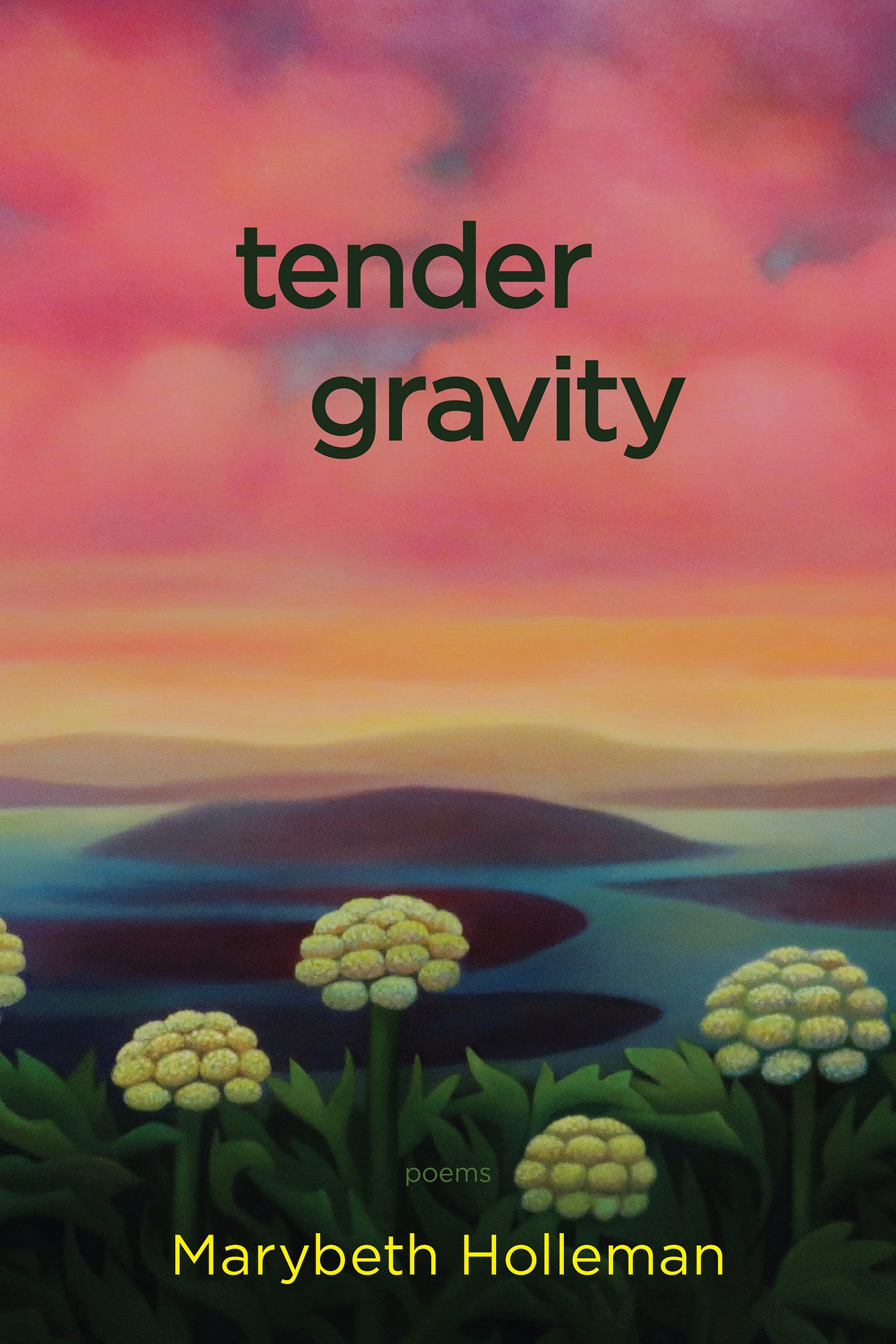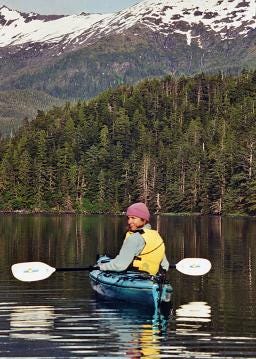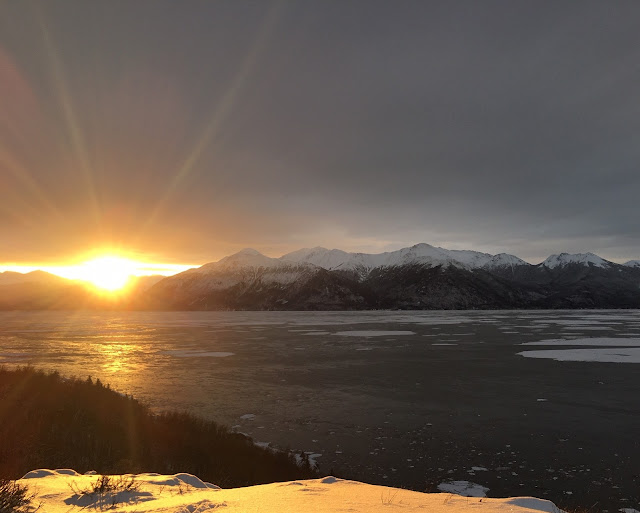How shall we live? Turning to the natural world
By Marybeth Holleman
first published on Medium, here.

Marybeth Holleman is the author of the poetry collection tender gravity, which charts her quest for relationship to the more-than-human world, navigating her childhood in North Carolina to her life in Alaska, with deep time in remote land and seascapes. In the following essay, Marybeth recounts her childhood and how nature continuously grounds her.
tender gravity opens with a poem from childhood. Growing up in Asheville, North Carolina, we spent those hot humid summers in the water — at the neighborhood pool, in mountain streams, flying down Sliding Rock. In the next poem, that warm water turns to blue-ice glaciers and the cold waters of Alaska, where I now live, and where my love of swimming transformed into kayaking. In both, my body moves through these different waterscapes, embracing the wild nature of the place.

Growing up, the middle child in a big family, I always sought refuge in nature. On family hikes in the Appalachians, I’d lag behind the long line of humans. In our yard, I’d climb up on the garage roof and perch among pine and mimosa branches, listening to birds and my brother shooting hoops on the patch of pavement below. I was the quintessential middle child: quiet, nearly invisible, lost in a book, the woods, a tree, a story.
In nature, I ground enough to feel my own being, my own beating heart, what rings true. This has always been so, and yet, sometimes we forget what grounds us. When my brother was murdered, I grappled for some way to comprehend, to help my parents, his wife, and young sons. I found myself in front of my doctor of twenty years. She knew me. She knew all my stories. She knew how to listen as I poured out my grief. Then she said, “Why don’t you go for some walks in nature? That’s what grounds you.” I sat still, wondering how I could have forgotten. But now I know: when horrid events outside our control knock us down, we can forget our own ground.

For me, writing is an act of grounding, remembering, transforming. Like a plein air artist, I find my best work rises when I’m in direct contact with the wild. It doesn’t take much. Yes, I’ve had lots of wilderness time, where days go by without any hint of humanity. But it can happen sitting in the dogwood tree that grew between the dirt lot and the road of my childhood, or sitting beneath the birch that grows outside my window here. I’m just a conduit, a transcriber, a translator. In A.R. Ammons words, I “look for the forms/things want to come as.”

This summer, I keep seeing hermit thrushes — brown and beige birds who hide in forests. They’re known not for looks but for songs. I like this, being heard and not seen. The opposite of what I learned as a child: to be seen and not heard. And yet now I keep seeing them. The hermit thrush is like the poet, the writer: we write our words, sing our songs, in solitude, hiding in our writing spaces, whether we’re sitting under a tree or in a busy subway station. Then we send those songs out into the world, let their beautiful voices rise.
I live in Alaska, but I visit my home ground in North Carolina regularly. I have family there; some are human; some are mountains; some are rivers, trees, songbirds. They’re not so different, these places. Later in tender gravity, the poem “with” brings it together, my moments with other beings, in North Carolina and Alaska and elsewhere. It’s all just one big chorus, after all.
They say that every story seeks to answer one essential question: how shall we live? I’ve always turned to the natural world, replete as it is with, as Darwin wrote, “endless forms most beautiful” of living and being and dying, for models on how to live. For that I’m eternally grateful. And because of that, I want, in my work, to reveal this power of the natural world, so that others, too, might find solace, grounding, and joy there.
Grab a copy of tender gravity and support an independent bookstore by doing so here.






